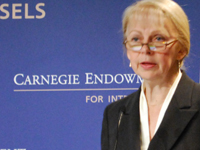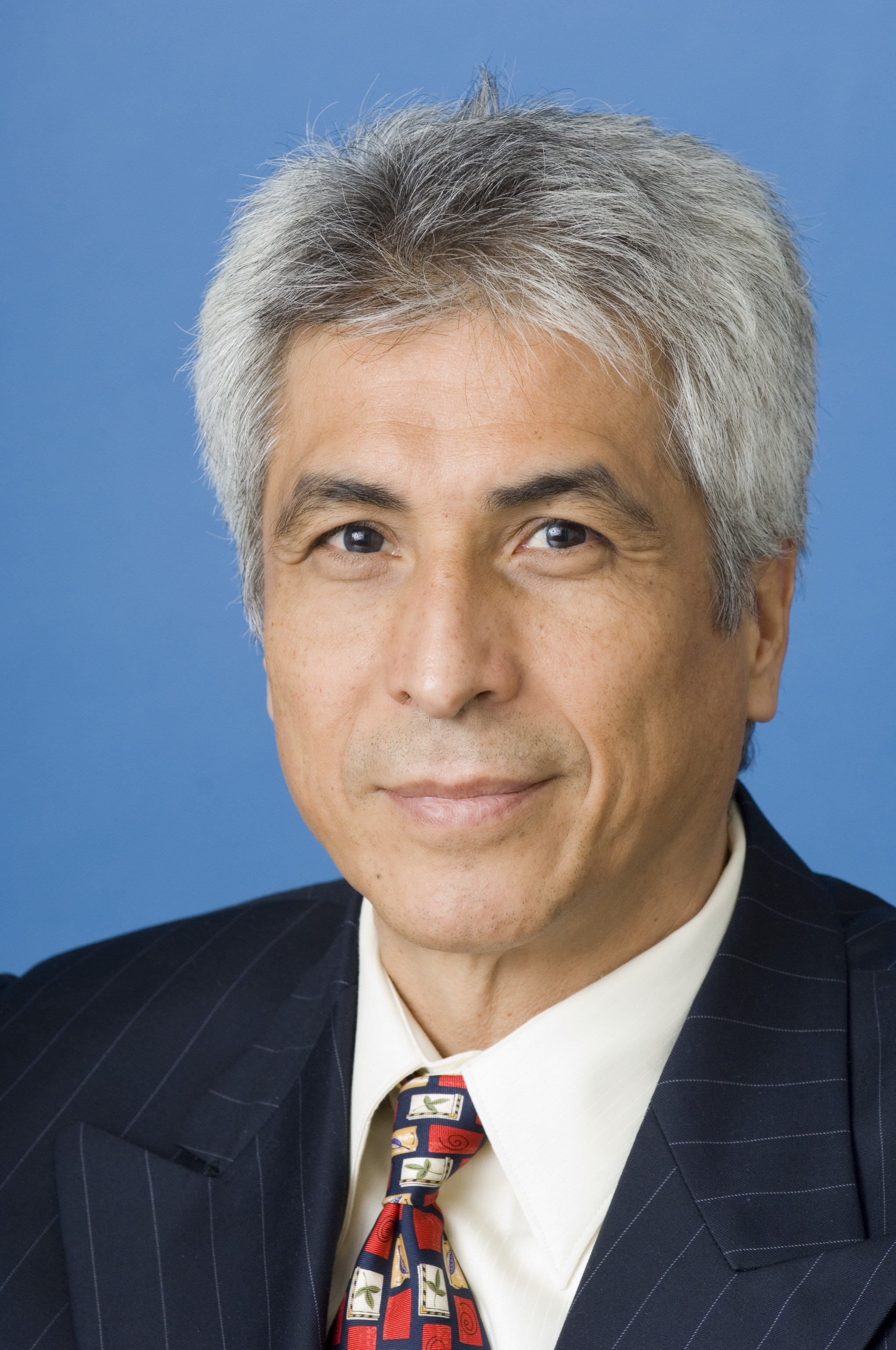{
"authors": [
"Sandra Polaski",
"Eduardo Zepeda",
"Armand Pereira",
"Karen Thierfelder"
],
"type": "event",
"centerAffiliationAll": "",
"centers": [
"Carnegie Endowment for International Peace"
],
"collections": [],
"englishNewsletterAll": "",
"nonEnglishNewsletterAll": "",
"primaryCenter": "Carnegie Endowment for International Peace",
"programAffiliation": "",
"programs": [],
"projects": [],
"regions": [
"North America",
"South America"
],
"topics": [
"Economy",
"Trade"
]
}
Brazil in the Global Economy – Measuring the Gains from Trade
Thu, April 9th, 2009
Washington, DC
IMGXYZ1211IMGZYXThe Brazilian economy would receive a small boost from either a Doha Round trade agreement at the WTO or a major trade pact with other developing countries, including China, according to a new report by the Carnegie Endowment, the International Labour Office (ILO) and the UN Development Program (UNDP). The report examines a range of trade policy choices facing Brazil and simulates their effects on household incomes, employment, and production in the country.
Co-author Sandra Polaski presented the report, Brazil in the Global Economy - Measuring the Gains from Trade, at an event in Washington, DC on April 9. (The authors presented the report in Brasilia, Salvador and Sao Paolo the previous week.) At the Washington launch, Armand F. Pereira, Director of the ILO’s Washington Office, offered comments on the report’s implications for labor policies in Brazil. Karen Thierfelder, professor of Economics at the United States Naval Academy, provided insight into the models used to simulate the potential trade agreements. Carnegie’s Eduardo Zepeda moderated.
After eight years of strong growth, Brazil has emerged as a key player in global trade negotiations. At the same time, Brazilian policy makers face complex challenges as they try to grow their economy in ways that will increase employment and living standards, Polaski explained. Though other studies have examined Brazil’s trade policy options, Carnegie’s new report offers unique insight into the potential distributional impacts – both across regions and across different types of workers – of such policies.
Using computerized-general equilibrium models, Polaski and co-authors simulate the impact of various trade policy changes, including a Doha Round agreement and several South-South free-trade agreements (FTAs) with other developing countries including India, South Africa, China, and the other member states of the MERCOSUR customs union. The study also probes the effects of rapid growth in China and India and of world price volatility for commodities that are important to Brazil.
Modest Impacts from Trade Agreements
Polaski and co-authors find that, while Brazil sees net gains from a Doha agreement, the benefits are smaller than is commonly thought, particularly for the agricultural sector. This is due to several factors, among them the Doha scenario used in the study is more realistic (and less ambitious) than Doha Round simulations in many earlier studies. It is also a result of a more realistic assessment of the ability of farmers to expand the supply of land in response to price changes than has been assumed for some other modeling exercises. Finally, the present study takes into account that the reduction of subsidies in OECD countries will have the effect of lowering land prices, particularly in European countries, which could increase the world supply of agricultural exports from those countries and moderate the new opportunities on world markets for countries like Brazil.
Overall, the authors estimate that a Doha agreement would generate a 0.4 percent improvement in real income. The broadest South-South FTA increases real income by a comparable amount. As simulated, such an agreement would include Brazil, India, China, the Southern African Customs Union and all of Mercosur, including new members Chile and Venezuela.
Each of the simulated trade pacts induce changes in production, as the manufacturing sector contracts slightly and the agricultural sector expands. The most notable changes are increases in the production of primary products and lower output of electrical equipment. Only a few industries shift by more than 1 percent.
The study includes detailed regional information that allows an assessment of the effects on different regions and the potential for cross-regional migration. While all regions gain from a Doha agreement, Sao Paulo, Rio de Janiero, and areas in the west and south benefit more than those in the north and north east, indicating moderate redistributive impacts. No region gains more than 0.2 percent in welfare.
Unlike most other trade models, this study does not assume full employment, instead reflecting Brazil’s actual unemployment levels for unskilled workers. As a result, the overall level of employment can increase or decrease in response to changes induced by new trade pacts, rather than simply move from expanding to contracting sectors as in most trade simulations. The trade scenarios would provide modest gains of up to 0.6 percent in employment of unskilled workers, but could shift some workers from manufacturing to agriculture, where wages are lower. This shift also induces adjustment costs, as workers face at least some period of unemployment while they search for work in new sectors. By way of illustration, the adjustment costs for Brazilian unskilled workers would be 4.5 times those of unskilled workers in the EU. All of the trade agreements that were simulated in the study induce small but positive impacts on skilled labor wages.
Marginal Benefits from Rising Productivity in India and China
Findings also indicate that fears about additional competition from growth in India and China oversimplify the actual impacts. Increased manufacturing productivity in these two countries would marginally benefit – not harm – overall incomes and employment in Brazil, as the nation benefits from cheaper imported consumer goods and inputs to its production processes.
Commodity Price Fluctuations More Significant
Gains or losses from fluctuations in the prices of soy, wheat, and crude—like those seen in 2007 and 2008—have larger impacts on Brazil’s economy than the trade policy choices examined. A 50 percent increase in the price of soybeans, which is a relatively important export for Brazil, increases Brazilian welfare by almost 1.5 percent. By contrast, a 100 percent increase in the price of wheat, which Brazil imports, diminishes Brazilian welfare, although by less then 0.5 percent. Finally, a 35 percent increase in the price of crude oil decrease Brazilian welfare by about 1.5 percent. Polaski cautioned, however, that in light of the recent discovery of Brazilian oil reserves, the country may transition from being an importer to an exporter of oil, in which case crude oil price spikes would probably have net positive effects for Brazil.
Additional Safety Nets Needed
Polaski advised that, in light of the study’s findings, policymakers should consider additional social safety net measures to help households adapt to the structural changes induced by Brazil’s engagement with the global economy.
Armand Pereira of the ILO then explained that Brazil has advanced significantly in the development of labour market policies that can assist workers in this transition and stands out as a leader in Latin America in this respect. However, he noted that spending and coverage is still quite limited. Informal workers are largely excluded from the coverage of most programs although they may be particularly in need of assistance. This pertains to unemployment insurance and retraining programs, as well as many social security benefits. They may bernefit from microcredit programs or from the Bolsa Familia cash transfer program, although benefits under the latter are very small.
Question & Answer
In response to the suggestion that the study simulate trade agreements in services as well as in goods, Polaski responded that current data and modeling limitations made such analysis unreliable. However, she expressed confidence that liberalization of trade in services could add to the potential gains from trade agreements, depending on the scope and coverage of the services agreements that might emerge.
Polaski also defended the authors’ choice to model a modest Doha agreement comapred to the scenarios used in some other studies. She explained that, according to a World Bank assesment of the most recent modalities proposals (July 2008), the present study’s simulated tariff cuts were very close to the net impact of the manufacturing tariff proposals now on the table in the Doha talks. However according to the World Bank analysis, the Brazil report simulation of agricultural tariff cuts actually was higher than proposals under consideration, suggesting that the current study may overstate the agricultural benefits from Doha, rather than understating them.
Carnegie does not take institutional positions on public policy issues; the views represented herein are those of the author(s) and do not necessarily reflect the views of Carnegie, its staff, or its trustees.
Event Speakers
Until April 2002, Polaski served as the U.S. Secretary of State’s Special Representative for International Labor Affairs, the senior State Department official dealing with such matters.
Zepeda is inter-regional policy coordinator of the Development Policy and Analysis Division, Department of Economic and Social Affairs at the United Nations General Secretariat. He was previously a senior associate in the Trade, Equity, and Development Program at the Carnegie Endowment for International Peace.
Armand Pereira
Karen Thierfelder

